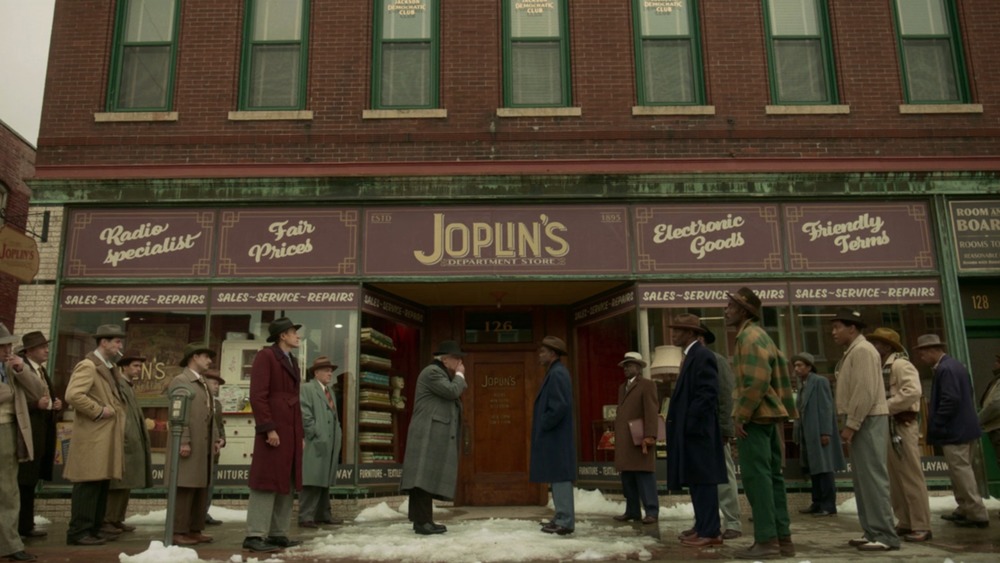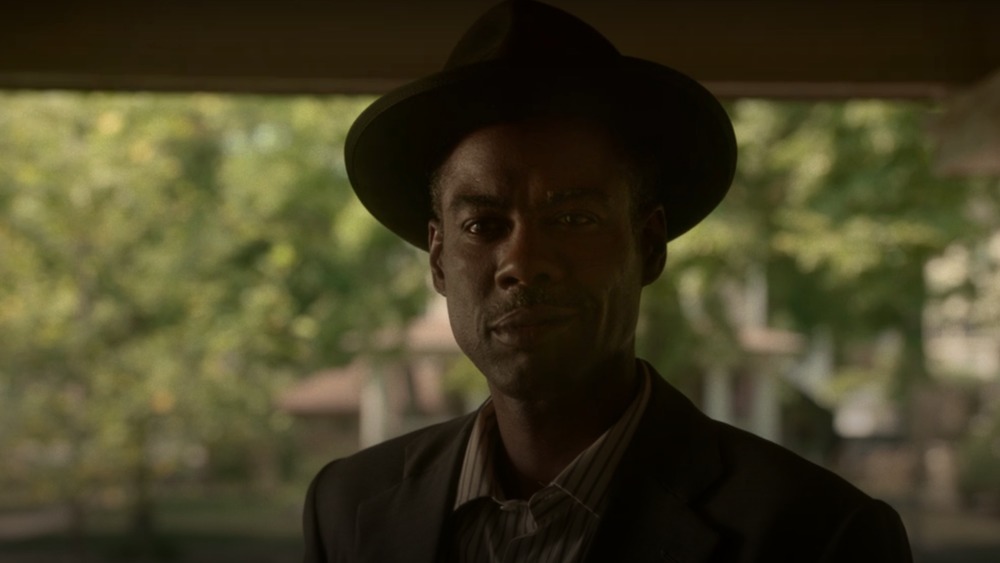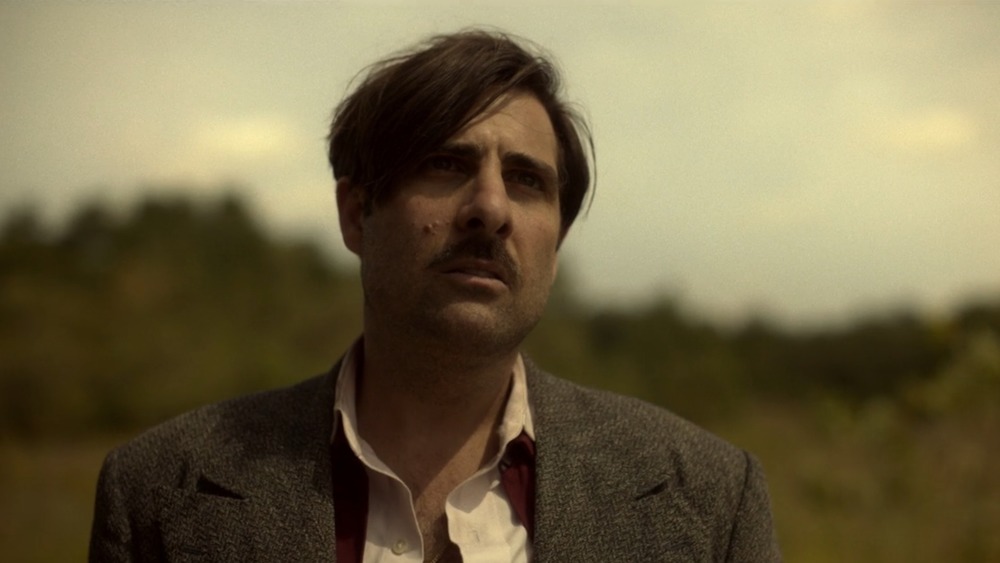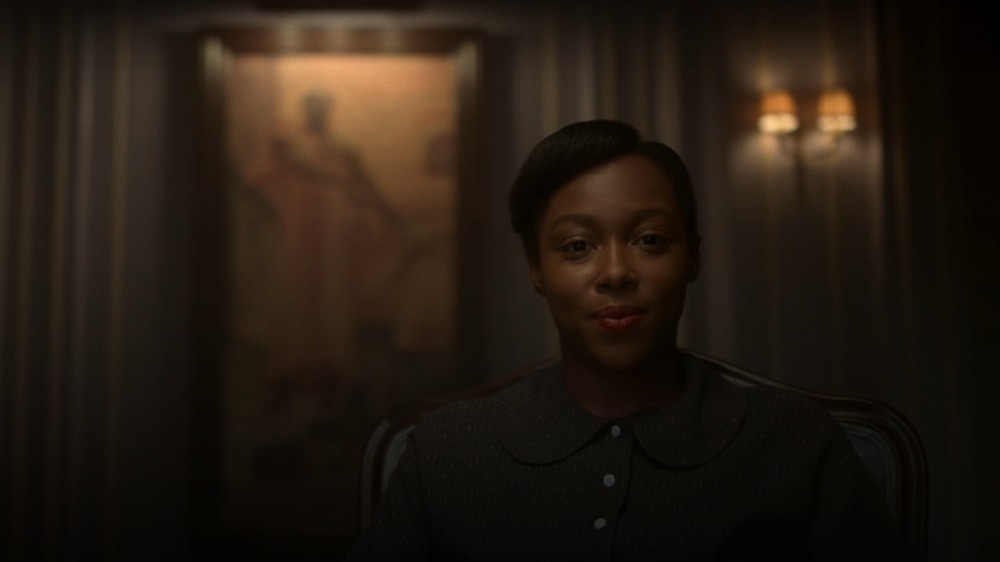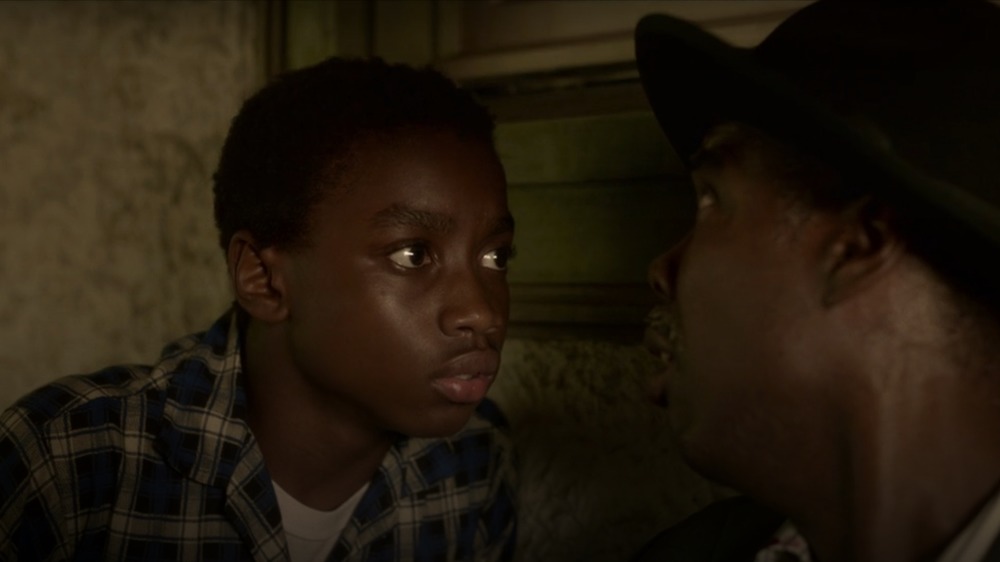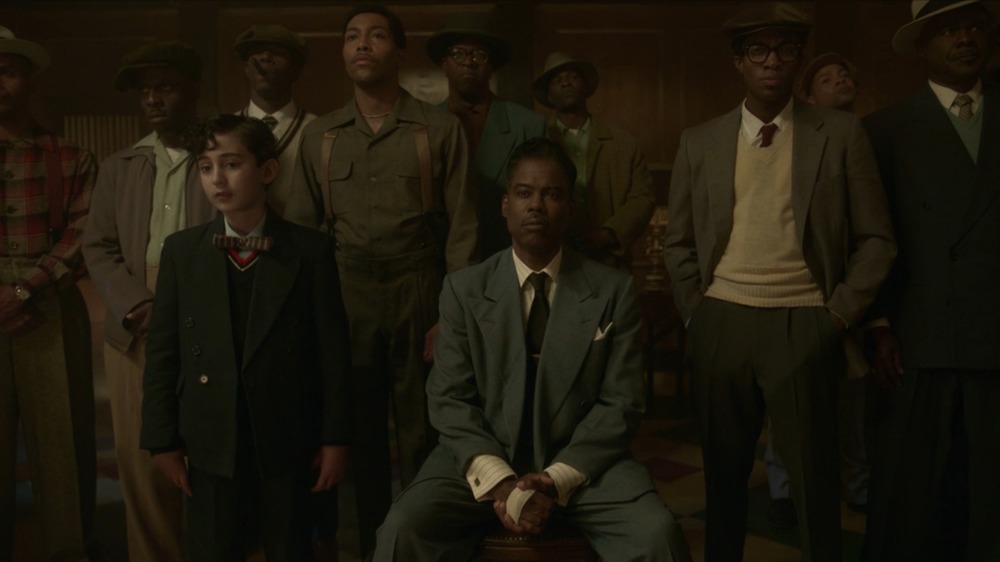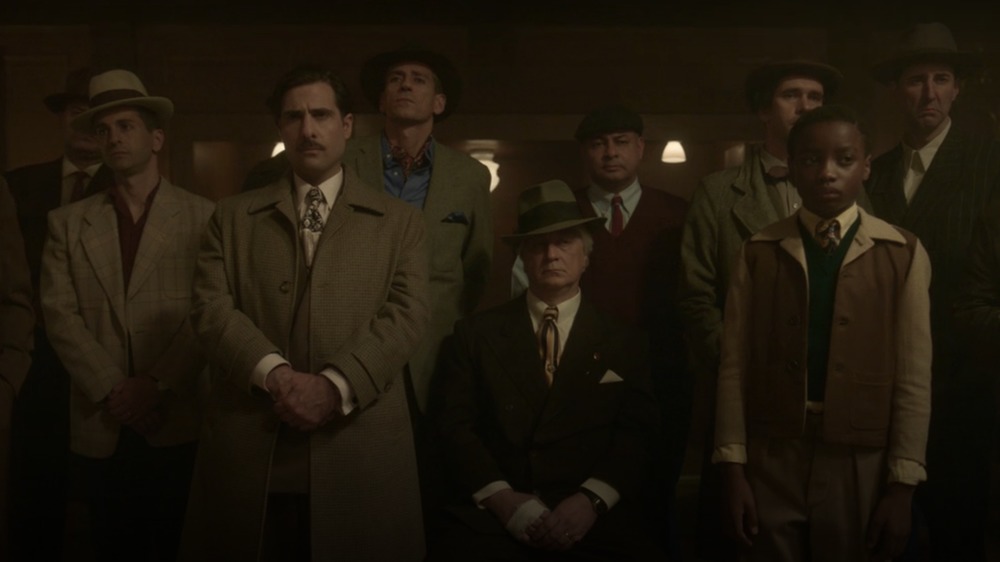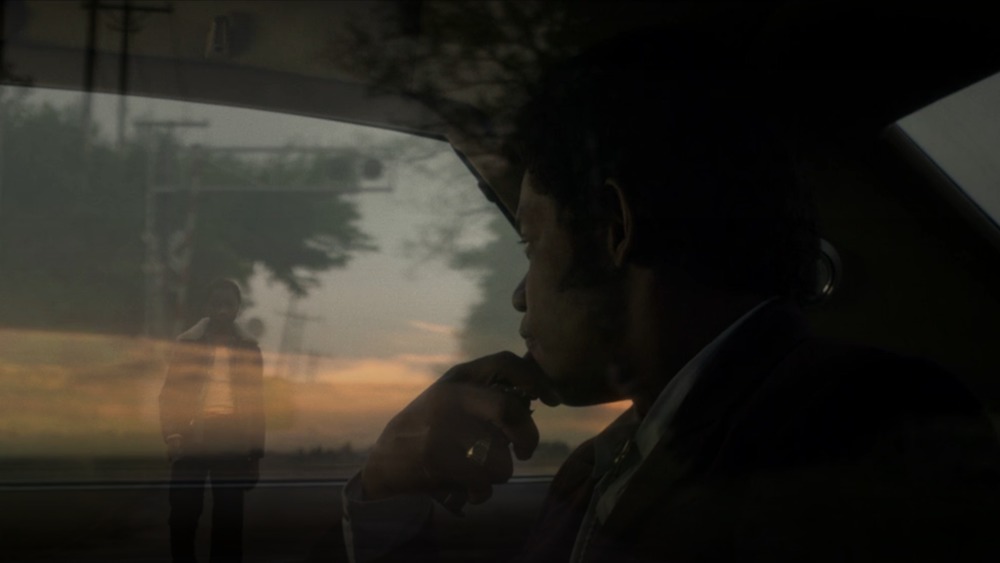The Ending Of Fargo Season 4 Explained
Major spoilers for Fargo season 4 to follow.
It's been a long and bloody season. The anthology series Fargo — inspired by the movie of the same name — pits two crime families against each other for its fourth season. What started with an uneasy truce between a branch of the Italian Mafia and the up-and-coming Black Mafia turns into an all-out war on the streets of 1950s Kansas City, Missouri. Of course, it was only going to end in blood — it was just a matter of whose. It turns out that it was almost everyone's.
The first episode told of a long history of minorities fighting each other for control of Kansas City's underworld, as they were unwelcome elsewhere. After the Jewish and Irish families were wiped out, it's now the Fadda family and the Cannon family facing each other down. They broker a tenuous peace when they trade sons: the youngest son of each family's head is to live within the enemy's home as collateral in the case of one side turning on the other.
However, the seemingly accidental death of the Italian boss Donatello Fadda (Tommaso Ragno) cracks the delicate balance as his son Josto Fadda (Jason Schwartzman) takes power. Unfortunately for Josto, things get complicated when his younger, burlier, brother Gaetano (Salvatore Esposito) arrives from Italy and insists on brashly attacking the Cannons. Meanwhile, Loy Cannon (Chris Rock), head of the Cannon family, is angling for more power than their deal originally gave him.
While the two sides take strikes at each other, several people wind up in their orbit. The Minnesotan-accented nurse Oraetta Mayflower (Jessie Buckley) kills Donatello Fadda in the hospital and attempts to take on the teenage Ethelrida Pearl Smutny (E'myri Crutchfield) as a "project." However, Ethelrida soon discovers Oraetta's penchant for killing her patients, while Oraetta engages in a sexual relationship with Josto. And of course, with all this crime comes two lawmen: the corrupt local cop Odis Weff (Jack Huston) and the racist U.S. marshal Dick "Deafy" Wickware (Timothy Olyphant).
In the end, the Italian Mafia wins out over the Black Mafia. It's akin to a chain corporation absorbing a small business, as the Faddas are one part of a country-wide operation, while the Cannons have limited connections beyond Kansas City. Here's how it all went down.
Loy Cannon found peace just before being stabbed to death
Loy Cannon fights for power and money all season, but it's at the expense of his family. He trades his youngest son, Satchel, to the Italians and insists on including his eldest son in the crime business, despite his reluctance. Through it all, Loy attempts to keep to a set of morals known only to him. He is simultaneously a ruthless loan shark and a man with a billion dollar idea that is stolen from him because of the color of his skin.
The season finale is a rollercoaster for Loy. His previous ally Leon turns on him, but is killed before he can get a shot off. Then Loy finally succeeds in driving a wedge between the members of the Italian crime syndicate. He failed to pit the brothers Josto and Gaetano against each other before, but he succeeds in turning the advisor Ebal Violante on Josto. He comes to another deal with Ebal, the Italians' new leader, but is allowed less power than before. It's seemingly a huge loss after so many of his guys were killed.
However, in his final moment, Loy looks through the window at his reunited family and smiles. It seems that he's accepting the loss of power in favor of his family being together. Unfortunately, his past actions come back to stab him to death in the form of the outlaw Zelmare Roulette (Karen Aldridge). He'd betrayed her previously, resulting in the death of her partner Swanee Capps (Kelsey Asbille). Loy dies on his front porch, looking at his son Satchel. In the end, his change of heart was too late.
Josto Fadda reconciled with his family but was killed nonetheless
Josto Fadda starts the season as a young pawn traded to the Irish mob. He isn't afraid to stab a man when his family comes to take out the competition. Later, as an adult, he encourages his father, Don Fadda, to move against the Cannons. He says there's a big difference between the two families: the Cannons are animals, while the Faddas are the Roman Empire. This is soon thrown in his face when the local hospital refuses service for his heinously wounded father.
In a moment of vulnerability (while also high on drugs), Josto asks the nurse Oraetta Mayflower to "take care" of his father. If you've seen any mob film, those words out of a gangster's mouth usually don't mean anything good. But they are directed at a nurse, not a lackey. Strangely enough, this seemingly innocent moment becomes Josto's undoing in the end, when Loy Cannon tells Ebal about Oraetta's role in Don Fadda's death. Ebal assumes Josto was in on it to take his father's power, and orders both him and Oraetta killed.
At this point, Josto's already in a bitter place. He's just lost his brother Gaetano in a freak accident after the pair of them had actually reconciled their differences. Then, after trying all season to make careful, cunning moves, he takes that pain and carelessly murders the hospital administrator that originally turned away his father.
Faced with his imminent death, Josto argues with his killer that this infighting is "what they want us to do." It's a ladder, but there's nowhere to go, he says. There's an unfortunate irony in the death of Josto, who spent so much of the season in conflict with his own brother — he dies at the hands of his own people after they've finally come together.
Ethelrida Pearl Smutny comes out of it all mostly unscathed
Ethelrida Pearl Smutny, the biracial daughter of a pair of funeral home owners, opens up the season with a history report and closes it with her finishing remarks. She questions what makes one an American and who history forgets when it's retold.
The intelligent teenager watches the events of the season unfold as an unwilling participant. Her parents start out in debt to the Cannon family, lose their house and business, and are very nearly poisoned by Oraetta Mayflower. Ethelrida plays a crucial role in the end, though, as her investigation into Oraetta gives her fodder to use in negotiation with Loy Cannon. She convinces him that her parents have paid back their debt and thus earned their business back. She gives him Don Fadda's ring — which Oraetta originally stole — and the knowledge he uses to take out Josto.
In her last scene, she grabs a pair of suitcases and leaves, perhaps heading off to college. Her family are the only ones who really get a happy ending — which makes sense, since they were the only ones not trying to actively commit crimes. They are also the only mixed race family, so in the end it may have been Ethelrida's white father's privilege that saved them. His house, where he ran his business, was passed down to him from his own father.
Satchel Cannon grows up to become Mike Milligan
Much of the conflict in the season hangs on the fact that if either side goes too far, their kid in the hands of the enemy will end up dead. Satchel Cannon (Rodney L. Jones III), Loy's youngest son, hangs in that limbo as he's held captive in the Fadda house, looked after by Rabbi Milligan (Ben Whishaw). As the son of an Irish mob leader, Milligan has gone through this process twice already. First he was traded to the Jewish syndicate, who he betrayed, and then he was traded to the Italians, who he joined. That experience makes him fiercely protective of Satchel. Toward the end, the pair of them run off just as the war breaks out. But Milligan finds his end not by a gunshot but via tornado, leaving young Satchel alone in the middle of nowhere.
All season, Satchel has just wanted to go back home to his family. He finally gets there, after walking along the highway with his dog, Rabbit. However, the joyous reunion only lasts a brief moment before his father is stabbed and dies right before his eyes. Then, in the last moments of the season, actor Bokeem Woodbine returns and reveals that Satchel grew up to be season 2's hitman Mike Milligan. It's no wonder that someone who grew up entrenched in violence like he did turned out to perpetuate it as an adult.
With a lot of themes on its plate, Fargo considers who is fighting whom
"If America is a nation of immigrants, then how does one become American?" Ethelrida asks in the first episode, over a sequence showing the latest immigrants to Kansas City killing their predecessors. Fargo season 4 tackles the history of race and immigration entrenched in America, wondering what it is to assimilate and whose histories are truly remembered.
The rival crime syndicates are all just trying to make money to support their families, but as minorities, they are pitted against each other because they can't partake in the legal methods to gain wealth. Loy Cannon himself pitches the business idea of a credit card — what's more American than that? — to the local white banker but is turned down. By the end of the season, he finds out they ran with the idea without him. No wonder he deals in the shadows instead.
This division runs through the season between the Cannons and the Faddas, but it goes even deeper than that. Cannon's main tactics to defeat the Italians is to turn them against each other, something that Josto remarks on in his final words. Their oppressors want them to fight amongst themselves, instead of the system that turned them to crime in the first place. In the end, the whole gang war feels exceptionally pointless. They kill each other and get nowhere from it.
Ethelrida says our history books are written by those ruling the system, not the ones struggling under it. Fargo wants its viewers to see history through the eyes of the people who didn't write the books and understand where this history of crime comes from.
Series creator Noah Hawley says there may be a fifth season
As an anthology series, there won't be a direct continuation of this story in a fifth season. However, it does act a bit like a prequel to Fargo's second season, which follows the grownup character Satchel now going by the name Mike Milligan. Fargo creator Noah Hawley told The Hollywood Reporter that he's interested in writing a fifth season, but it won't be his next project, and it probably won't include these characters.
Acknowledging that some fans have said that season 4 season didn't feel like Fargo, Hawley told GQ that the show is an experiment. It centers on not-quite-true crime stories in a way to explore the American struggle of "basic decency in the face of greed and violence." Ultimately, if we see a fifth season of Fargo, it will likely continue exploring this idea, even if it's packaged slightly differently.
Mike Milligan was the original inspiration for this season
While Satchel was a relatively minor character throughout the season, Hawley told THR that the story was actually inspired by wanting to dive into the origins of Mike Milligan. It expanded from there, centering more on his father than himself, but it still shows how he came to be the curious man we met in season 2.
"When I started thinking about [Mike Milligan] in hindsight as this iconoclastic Black man living in a white world, who doesn't seem to fit in either place ... I started to think, where does a guy like this come from? ... So the idea of a Black man raised by an Irish American who himself was raised by a Jewish family and then an Italian family. That sounded like the history of America," Hawley said.
Maybe the fifth season will be inspired by a different Fargo character, but we'll have to wait and see.
